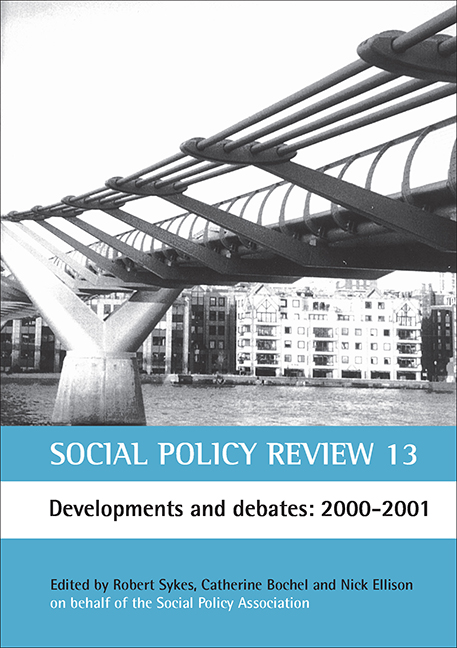thirteen - Through a lens darkly: sexuality and the 1834 New Poor Law
Published online by Cambridge University Press: 20 January 2022
Summary
This paper will examine a key piece of social policy – the 1834 New Poor Law Amendment Act and related Royal Commissioners’ Reports – through the lens of sexuality to see if this can add anything new to our understandings, not only of the 1834 Act, but also about social policy more broadly.
The term ‘sexuality’ is used here to refer to (and to encompass) sexual identity, practices, acts, intimate relations and relationships of individuals, groups, and even populations. It is taken to refer to a category of person (heterosexual, homosexual, lesbian, queer, bisexual and so on), the focus of their desire (same-sex, opposite sex, and so on) as well as embracing all sexual practices, acts and relationships (marriage, cohabitation, reproduction, parenting, partnering or otherwise) and the meanings attached to those acts and practices. It also refers to a system of knowledge encompassing what we know as sexuality, what dominates as the ‘truth’ of sexuality at any moment in time, and the power effects and relations (generally those of heterosexuality) which result.
Accounts of the history of the development of social policy in Britain rarely deal either explicitly or implicitly with the role played by sexuality in that development. This is surprising, as sexuality is often the explicit focus of policies whether as in the Contagious Diseases Acts of the 1860s, or as with sex and relationship education or teenage pregnancy in the 21st century. However, social policy does not have to be specifically concerned with sexuality for it to ‘speak’ of sexuality and for it to regulate sexual relations and behaviour, as we shall see. Social policies about, for example, housing, health, income support, or parenting can also contain assumptions and convey messages about appropriate, acceptable and normal sexual relations and practices. The Supporting Families Green Paper (Home Office, 2001) acknowledges that successful parenting can be found in a diversity of family arrangements while continuing to assert that the heterosexual married couple is the best arrangement for parenting, thereby conveying messages about what is the preferred and acceptable sexual relationship for parenting.
Ideas about what sexuality is, and about what is acceptable sexuality, are conveyed through sexuality discourses that also in part inform social policy.
- Type
- Chapter
- Information
- Social Policy Review 13Developments and Debates: 2000–2001, pp. 267 - 290Publisher: Bristol University PressPrint publication year: 2001

